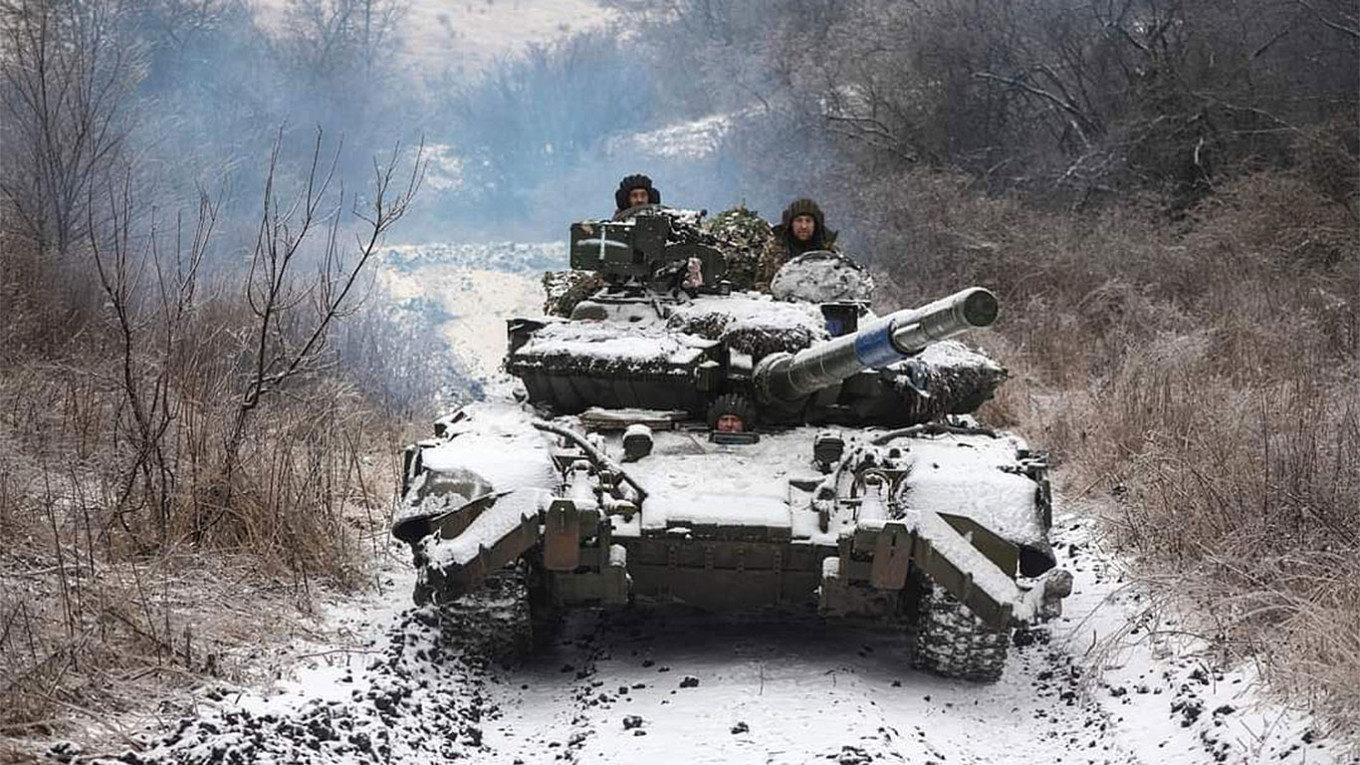The past year has been another year of significant change in Russia, from drone attacks, cross-border incursions and the Wagner mutiny to the arrests of journalists, the ICC's arrest warrant for Putin and Azerbaijan's takeover of Nagorno-Karabakh.
Here is a look back at some of the top headlines of 2023:
Ukraine’s Much-Anticipated Counteroffensive Floundered
Analysts spent much of the spring speculating about Ukraine’s planned summer counteroffensive: when it would start, whether it had already started and whether it could turn the tide of the war. One headline read “Ukraine’s Fate Rests on Its Imminent Counteroffensive,” while others placed the stakes even higher, arguing that the success or failure of the counteroffensive would determine “the future of the democratic world.”
President Volodymyr Zelensky announced the counteroffensive was underway on June 10. Kyiv saw some success, recapturing nearly all of the Kharkiv region and parts of Zaporizhzhia, establishing footholds on the Moscow-held side of the Dnipro River and seriously damaging parts of Russia’s Black Sea Fleet.
But by December, the future of Western military aid appeared increasingly uncertain and the Israel-Hamas war grabbed the world's attention, analysts were describing the counteroffensive as “failed.” Even Zelensky admitted Kyiv fell short of its goals, blaming shortages of weapons and troops.
“But this does not mean that we should give up, that we have to surrender,” Zelensky told the Associated Press. “We are confident in our actions. We fight for what is ours.”
U.S. Journalists Jailed
Wall Street Journal reporter Evan Gershkovich, a United States citizen, was arrested at the end of March in Yekaterinburg, becoming the first Western journalist to be jailed on spying charges in Russia since the Soviet era. The former Moscow Times reporter has been held in Moscow’s notorious Lefortovo Prison since then and faces up to 20 years in prison.
In October, Radio Free Europe/Radio Liberty’s Alsu Kurmasheva, a dual U.S.-Russian citizen, was arrested when she returned to Russia from abroad for a family emergency. She faces up to 15 years in prison on charges of failing to register as a “foreign agent,” along with charges of “spreading knowingly false information” about the Armed Forces that were added in December.
Gershkovich, Kurmasheva, and their respective employers deny the charges.
“Alsu was detained simply because she is an employee of Radio Liberty. In fact, now any independent journalist in Russia risks the same thing,” one of Kurmasheva’s colleagues told the New York-based Committee to Protect Journalists.
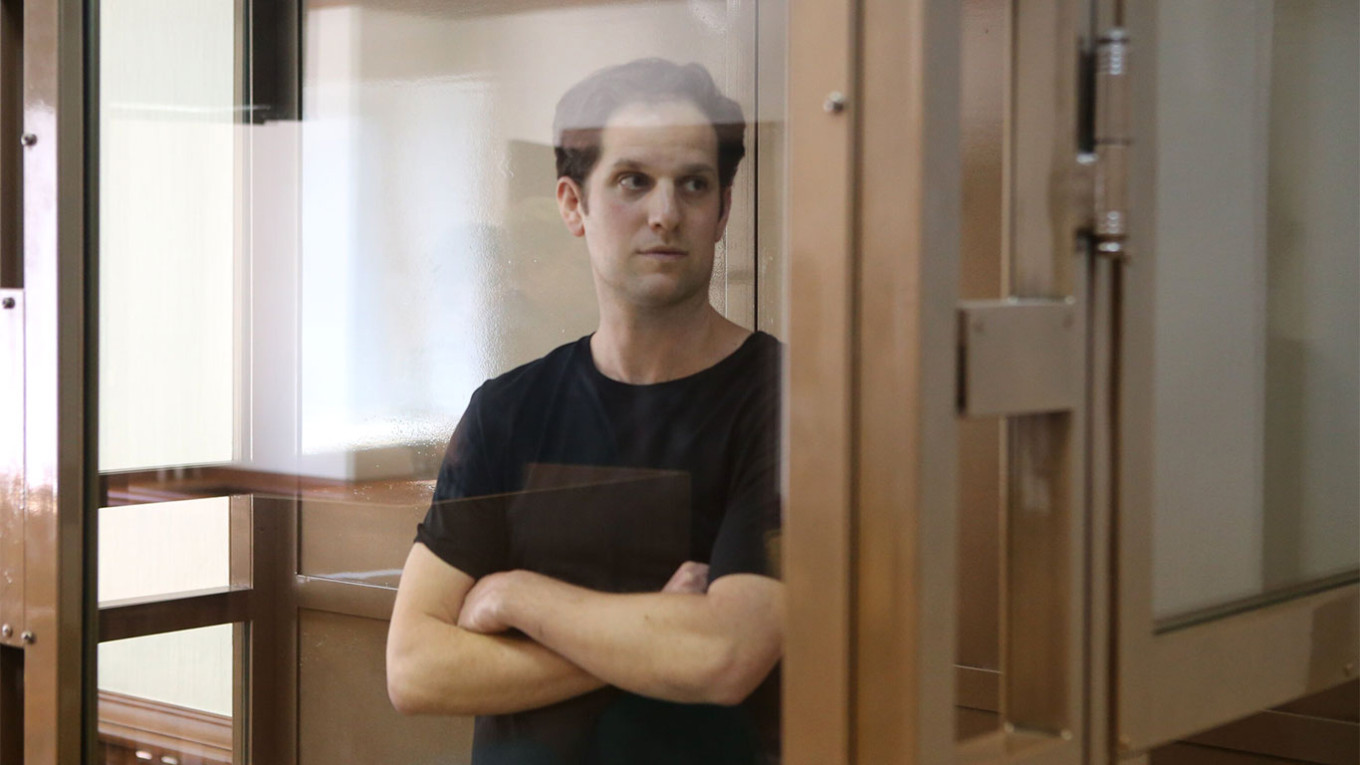
Gershkovich’s pre-trial detention has been extended to at least Jan. 30, 2024, while Kurmasheva’s will last until Feb. 5. Negotiations for Gershkovich’s release in a prisoner swap are ongoing. Kurmasheva’s supporters are calling for the U.S. State Department to designate her as “wrongfully detained,” a status that would entail more intensive diplomatic negotiations for her release.
With Russia's conviction rate standing around 99.6%, negotiated prisoner exchanges are likely the best hope either have to avoid years in prison.
Wagner Mutinied and Prigozhin Paid the Price
As the invasion of Ukraine dragged on and the Wagner mercenary group fought brutal battles in Bakhmut and elsewhere, Wagner leader Yevgeny Prigozhin became increasingly vocal in his criticisms of the military. Prigozhin said the Defense Ministry had taken credit for Wagner’s achievements in eastern Ukraine, accused the ministry of “high treason” and deceiving the public and called the military leadership “bastards.”
The feud culminated in a June 24 mutiny that saw Wagner capture a military command center in the southern city of Rostov-on-Don and launch an aborted march on Moscow. Wagner's fighters stood down some 200 kilometers from Moscow after Prigozhin agreed to go into exile in Belarus in exchange for immunity.
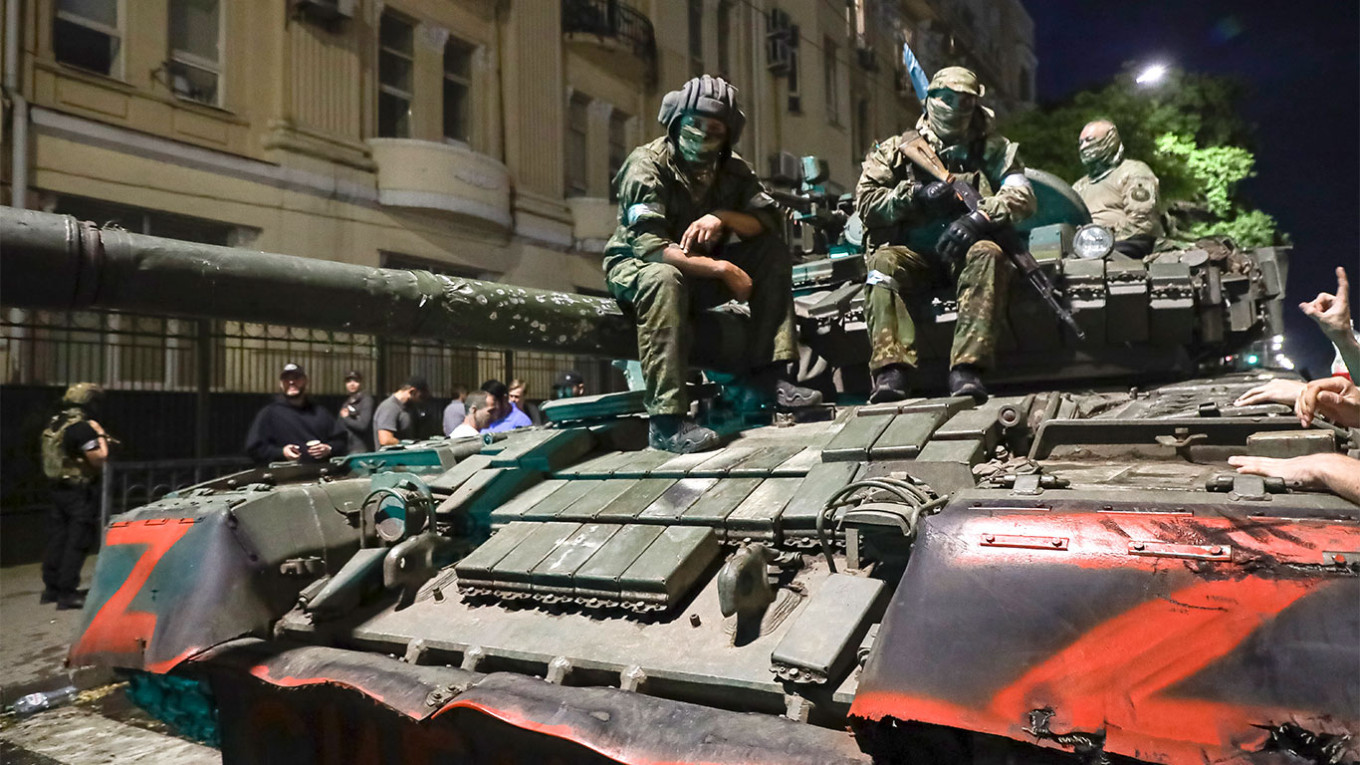
Two months later, Prigozhin and 10 others were killed when his private jet crashed between Moscow and St. Petersburg.
Prigozhin was just one of several prominent war supporters who criticized the Kremlin’s efforts in Ukraine and have since paid for sharing those opinions.
Analysts saw Prigozhin’s death as a reminder that support for the war is not enough; to be safe in Russia today, one must also be loyal to Putin, while the mutiny itself showed the fragility of the president’s rule.
“Roughly speaking, our main enemies at the moment are the patriots, as the liberals used to be,” a presidential administration official told The Moscow Times in August.
Military Blogger Killed in Cafe Bombing
Pro-war blogger Maxim Fomin, known by the nom de plume Vladlen Tatarsky, was assassinated while speaking at an April 2 event at a St. Petersburg cafe frequented by pro-war activists and ultranationalists.
Eyewitnesses say Darya Trepova, 26, gave the Donetsk-born blogger a golden bust of himself while he joked about security stopping her because it might be a bomb. The bust exploded minutes later, killing him and injuring some 40 others.
Tatarsky, a former bank robber and Ukrainian rebel with over half a million followers on social media, was one of a group of Russian military bloggers that has gained prominence since the full-scale invasion in 2022.
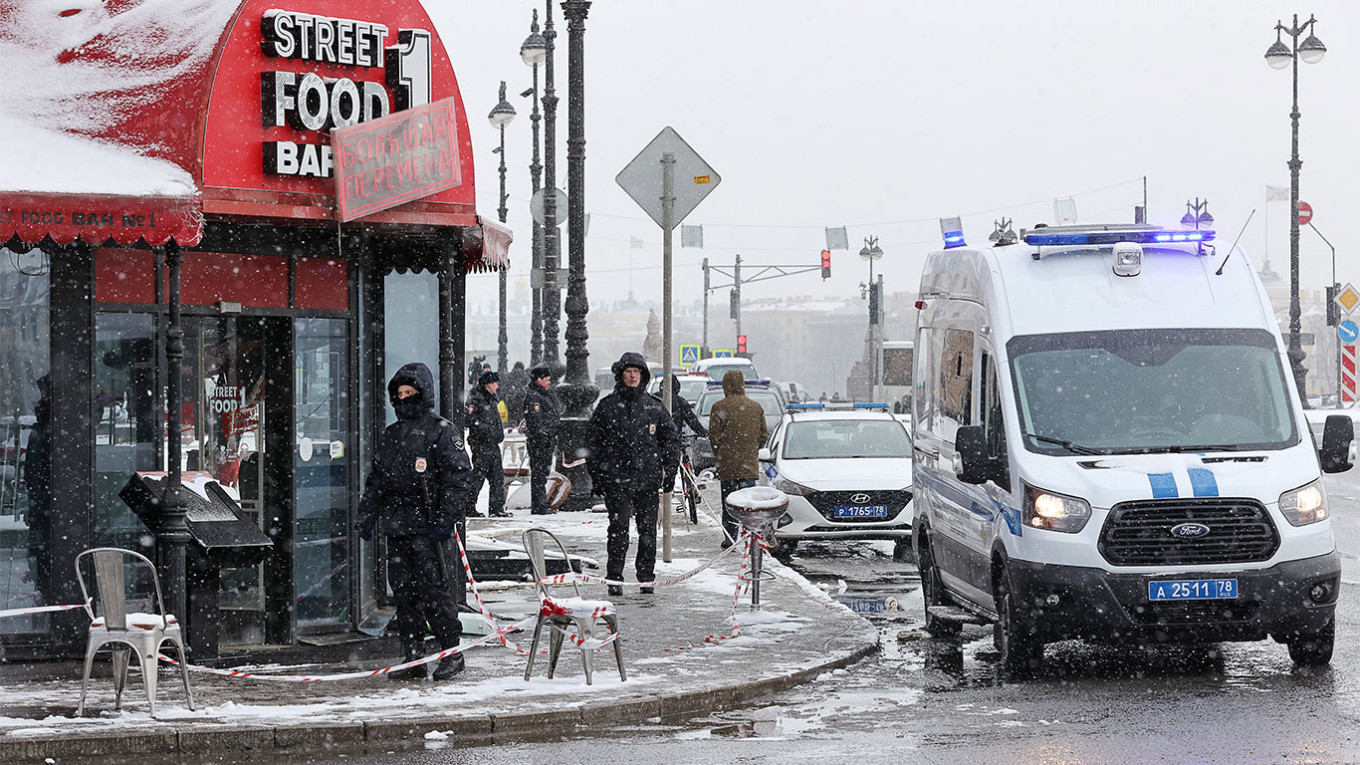
Putin posthumously awarded Tatarsky with the Order of Courage for his “courage and bravery shown during professional duty.”
Russian authorities claim Trepova is a Navalny supporter working on behalf of Ukraine and aided by anti-Kremlin activists, while the Ukrainians say the incident was a case of domestic infighting.
“I insist I didn’t know I was carrying an explosive device,” Trepova said at a November hearing.
She faces up to 20 years in prison for terrorism, 15 years for arms trafficking and four years for forgery.
The War Came to Russia
Between drone attacks on Moscow and incursions from across the Ukrainian border, this year the war came home to Russia.
On May 22, anti-Kremlin Russian fighters crossed into the Belgorod region in tanks and armored vehicles. Shocking residents, they briefly captured a border checkpoint and nearby settlement, before likely being pushed back into Ukraine.
The attack led to the evacuation of 550 civilians, one known civilian death, and the deaths of at least 14 Russian soldiers. This led to questions about whether the Russian military was capable of defending the border from both locals and people as high up as Wagner leader Yevgeny Progozhin.
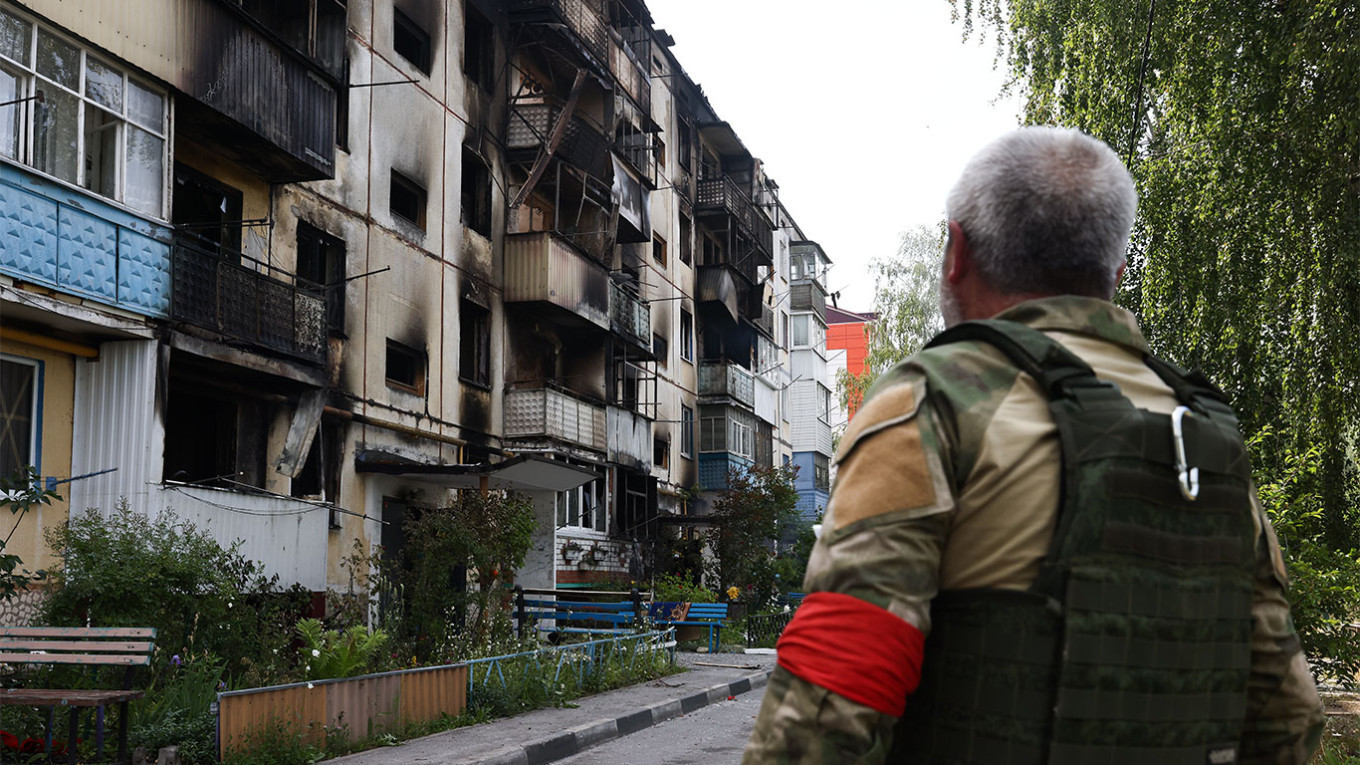
Days later, on May 30, residential areas of the capital, over 500 kilometers from Ukraine, were targeted by drones for the first time. Russian authorities said the drones were all intercepted and only caused minor damage to buildings.
This followed the May 4 shooting down of two drones over the Kremlin, in what Russian government sources called an assassination attempt on the president. Even when unsuccessful, strikes on Moscow show that “nobody, not even in the Kremlin, is safe,” said Oleg Ignatov, a senior analyst at International Crisis Group.
While the Moscow drone attacks disrupted summer vacations, cities in Russia’s border regions turned into ghost towns, with thousands evacuated and at least 90 civilians killed amid regular shelling and raids.
Ukrainian authorities have neither confirmed nor denied involvement in many of the attacks. But after the May drone attack on Moscow, Ukrainian presidential adviser Mykhailo Podolyak said “We are watching with pleasure — and we predict an increase in the number of attacks.”
Azerbaijan Regained Karabakh as Russian-Armenian Relations Disintegrate
Azerbaijan launched a lightning offensive in September that saw it regain control over Nagorno-Karabakh, the long-disputed ethnic Armenian enclave internationally recognized as part of Azerbaijan.
While Russian peacekeepers looked on, the Azerbaijanis retook much of the territory lost to Yerevan in the first Karabakh war in the 1990s, sparking the exodus of over 100,000 ethnic Armenians from the region.
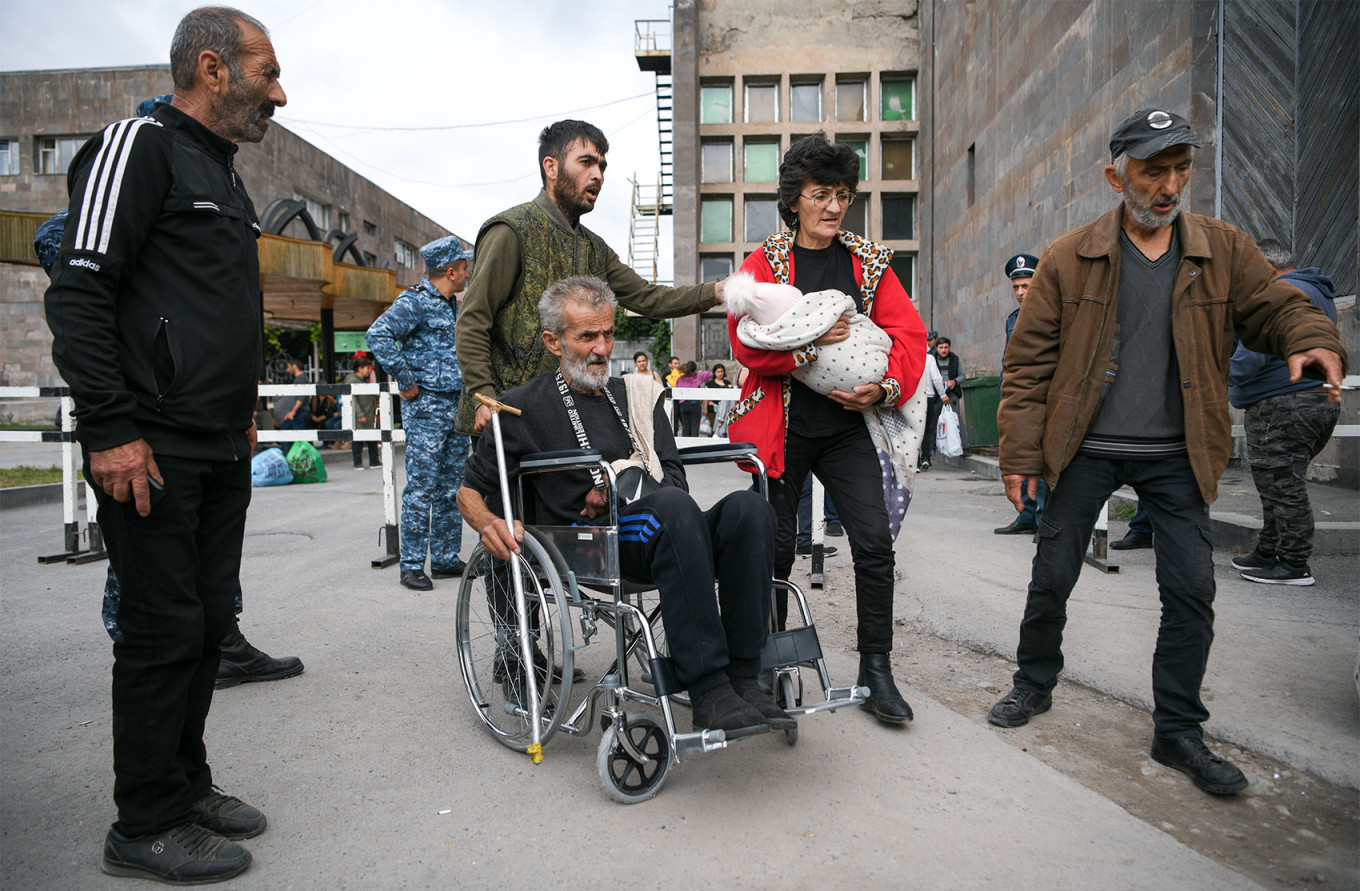
Russia, which has a permanent military base in Armenia, had long been seen as the country’s security guarantor. However, shortly after Baku took full control of Karabakh, Armenian Prime Minister Nikol Pashinyan gave a televised address where he said the country’s security alliances were “ineffective” and “insufficient.”
“Yerevan’s leadership is making a huge mistake by deliberately trying to destroy Armenia’s multifaceted and centuries-old ties with Russia,” the Russian Foreign Ministry said in a statement in response.
In further slights to Moscow, Armenia sent aid to Ukraine, skipped an important summit, carried out joint military drills with the U.S., suspended a Russian broadcaster’s license and joined the International Criminal Court, which currently has a warrant out for Putin’s arrest.
Meanwhile, as Europe looked to Azerbaijani natural gas to reduce their dependence on Russia, Armenians, disillusioned with Moscow, started taking classes run by paramilitaries to learn to defend themselves.
One refugee put it simply: “Russia has abandoned us.”
Putin Wanted by the ICC
The International Criminal Court on March 17 issued arrest warrants for Putin and his children’s rights commissioner Maria Lvova-Belova on charges of illegally deporting children from occupied areas of Ukraine to Russia, a war crime.
According to Kyiv, more than 10,000 Ukrainian children have been deported to Russia since the Feb. 24, 2022, invasion, while Lvova-Belova herself says that she has overseen the transfer of 700,000 children.
An ICC press release said Putin and Lvova-Belova each “bear individual criminal responsibility.”
Putin is now liable for arrest if he enters any of the ICC’s 124 member states. The warrant prevented Putin from going on a planned trip to South Africa for the annual BRICS summit.
In response to the warrant, Kremlin spokesman Dmitry Peskov called the ICC “a puppet in the hands of the so-called collective West.”
Russia has since placed ICC Prosecutor Karim Khan, President Piotr Hofmanski and judges Tomoko Akane, Sergio Gerardo Ugalde Godinez and Rosario Salvatore Aitala on its wanted list.
Kakhovka Dam Destroyed, Causing Catastrophic Flooding
On the morning of June 6, the Kakhovka hydroelectric dam on Ukraine’s Dnipro River was breached, flooding huge areas of the Kherson region, causing thousands to flee and at least 59 deaths, many of which were in Russia-occupied areas.
Seismic sensors detected signs of an explosion at the site of the 3.3-kilometer dam, which Ukraine’s SBU security service claimed was organized by a Russian sabotage group and evidence suggests the Russia-controlled dam was blown up from the inside. Moscow accused Ukraine of having deliberately shelled the dam.
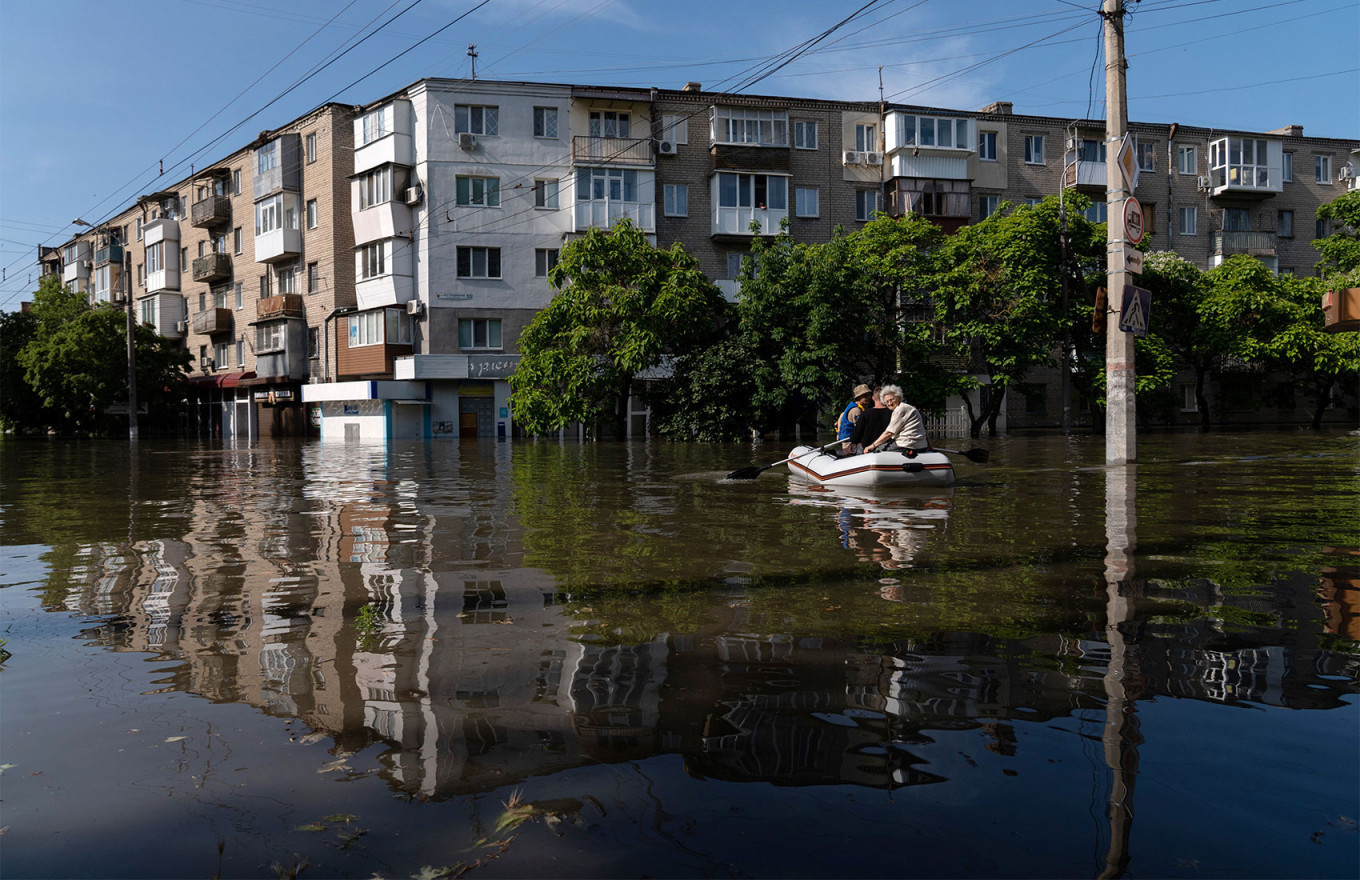
Despite the civilian deaths in Russia-held areas, the dam’s destruction, which happened just four days before Ukraine announced the start of its summer counteroffensive, had benefits for Moscow’s invasion.
The Dnipro serves as a natural defense for Russian troops in Kherson, and the flooding may have inhibited Ukrainian attempts to gain a foothold on the left bank of the river, which they could theoretically use as a base for further incursions into Russian-occupied Crimea.
In addition to putting water supplies in Kherson and Crimea at risk, the destruction washed landmines around Ukraine, raised concerns about cooling systems at the Zaporizhzhia nuclear power station and threatened global food supplies from the “breadbasket of Europe.”
Anti-Israeli Riots in Dagestan
As Israel ramped up an offensive on the Gaza Strip in response to the deadly Oct. 7 incursion by Hamas, an anti-Israeli mob of some 1,200 people stormed the Makhachkala International Airport in the North Caucasus republic of Dagestan, searching for Israelis and Jews rumored to have arrived from Tel Aviv.
The airport riot, during which protesters stormed the tarmac and climbed aboard an airplane, was one of the very few large-scale protest events in Russia in recent years. Rioters threw objects at police, waving Palestinian flags and searching for Jews. At least 20 people were reported injured.
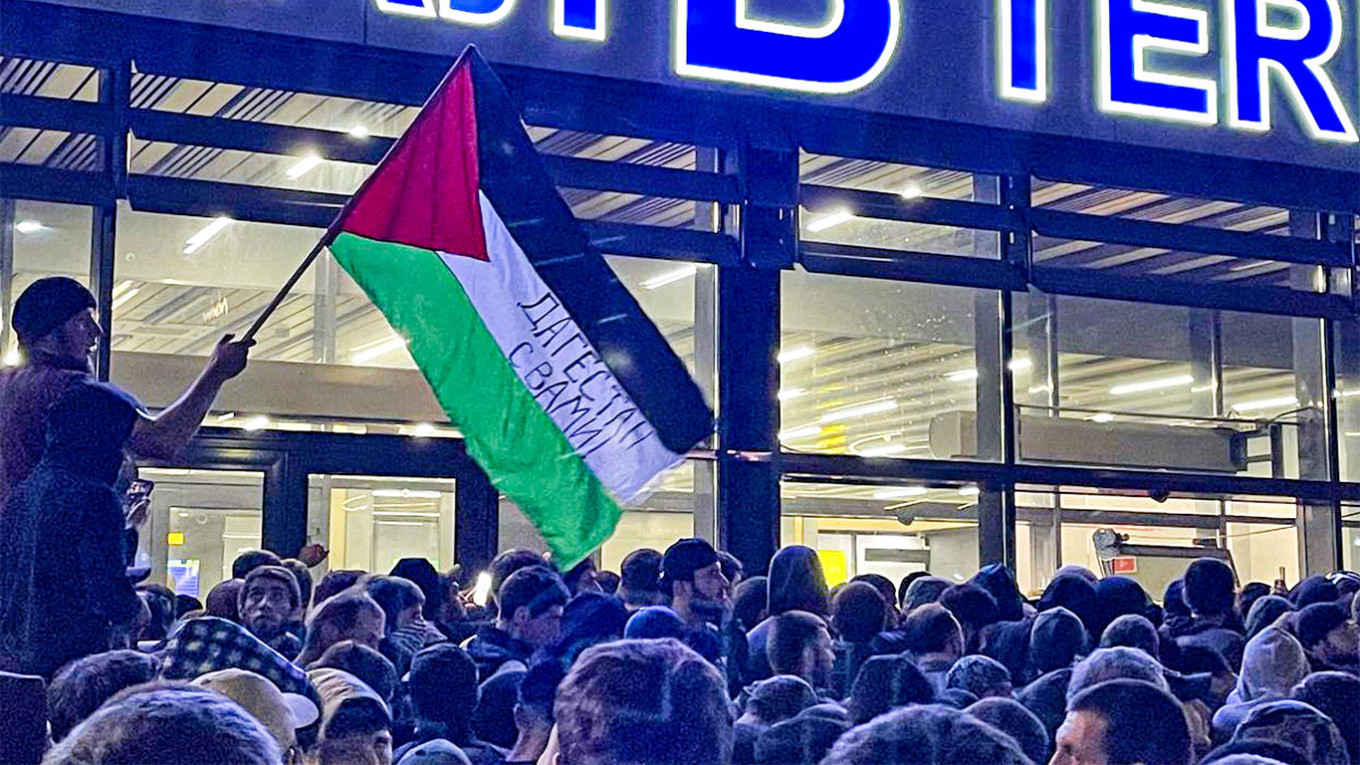
Over 400 people have faced administrative penalties for their participation in the riot, and up to 91 participants may have been jailed. Dagestan’s Deputy Interior Minister Rufat Ismailov and one of his deputies were arrested in the aftermath, as local law enforcement came under criticism for failing to prevent the riot.
Dagestan Governor Sergei Melikov blamed “external enemies of our country” for the events.
Putin agreed, saying “Who is organizing the deadly chaos and who benefits from it today, in my opinion, has already become obvious. ... It is the current ruling elites of the U.S. and their satellites who are the main beneficiaries of world instability.”
While Russia remained relatively neutral on the Israel-Hamas conflict, state media have used Palestinian suffering to highlight Western hypocrisy, contrasting Western support for Israel with its condemnation of Russian actions in Ukraine.
Only One President Left
As of Feb. 6, the head of the republic of Tatarstan is known as “rais” instead of “president.”
Rustam Minnikhanov, the leader of the Muslim-majority region, signed into law constitutional amendments approved by the Tatarstan legislative assembly that changed his title from “president” to “glava” (“head”) in Russian and “rais” in Tatar, an Arabic-origin word meaning “president” or “chairman.”
Twelve Russian regions had local presidencies beginning in the 1990s, but they have gradually been renamed under pressure from the Kremlin. Tatarstan had been the last holdout.
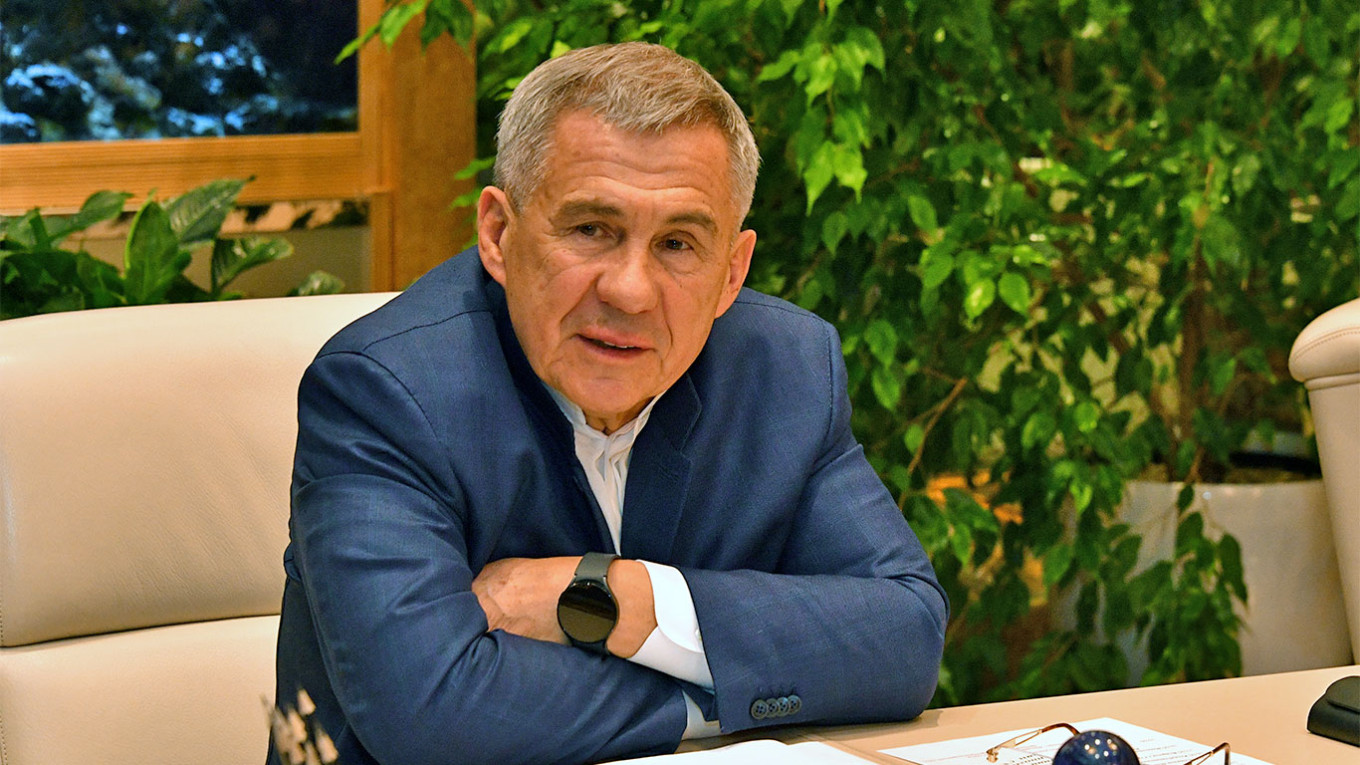
The loss of Tatarstan’s presidency symbolized its loss of other federal rights, such as mandatory Tatar language teaching in schools, as Moscow has centralized power across the country.
The amendments brought Tatarstan’s constitution in line with the 2020 Russian Constitution and a 2021 law abolishing regional presidencies.
“It’s a symbolic moment,” political scientist Alexei Makarkin, deputy head of the Moscow-based Center for Political Technologies, said. “There may only be one president.”
A Message from The Moscow Times:
Dear readers,
We are facing unprecedented challenges. Russia's Prosecutor General's Office has designated The Moscow Times as an "undesirable" organization, criminalizing our work and putting our staff at risk of prosecution. This follows our earlier unjust labeling as a "foreign agent."
These actions are direct attempts to silence independent journalism in Russia. The authorities claim our work "discredits the decisions of the Russian leadership." We see things differently: we strive to provide accurate, unbiased reporting on Russia.
We, the journalists of The Moscow Times, refuse to be silenced. But to continue our work, we need your help.
Your support, no matter how small, makes a world of difference. If you can, please support us monthly starting from just $2. It's quick to set up, and every contribution makes a significant impact.
By supporting The Moscow Times, you're defending open, independent journalism in the face of repression. Thank you for standing with us.
Remind me later.



